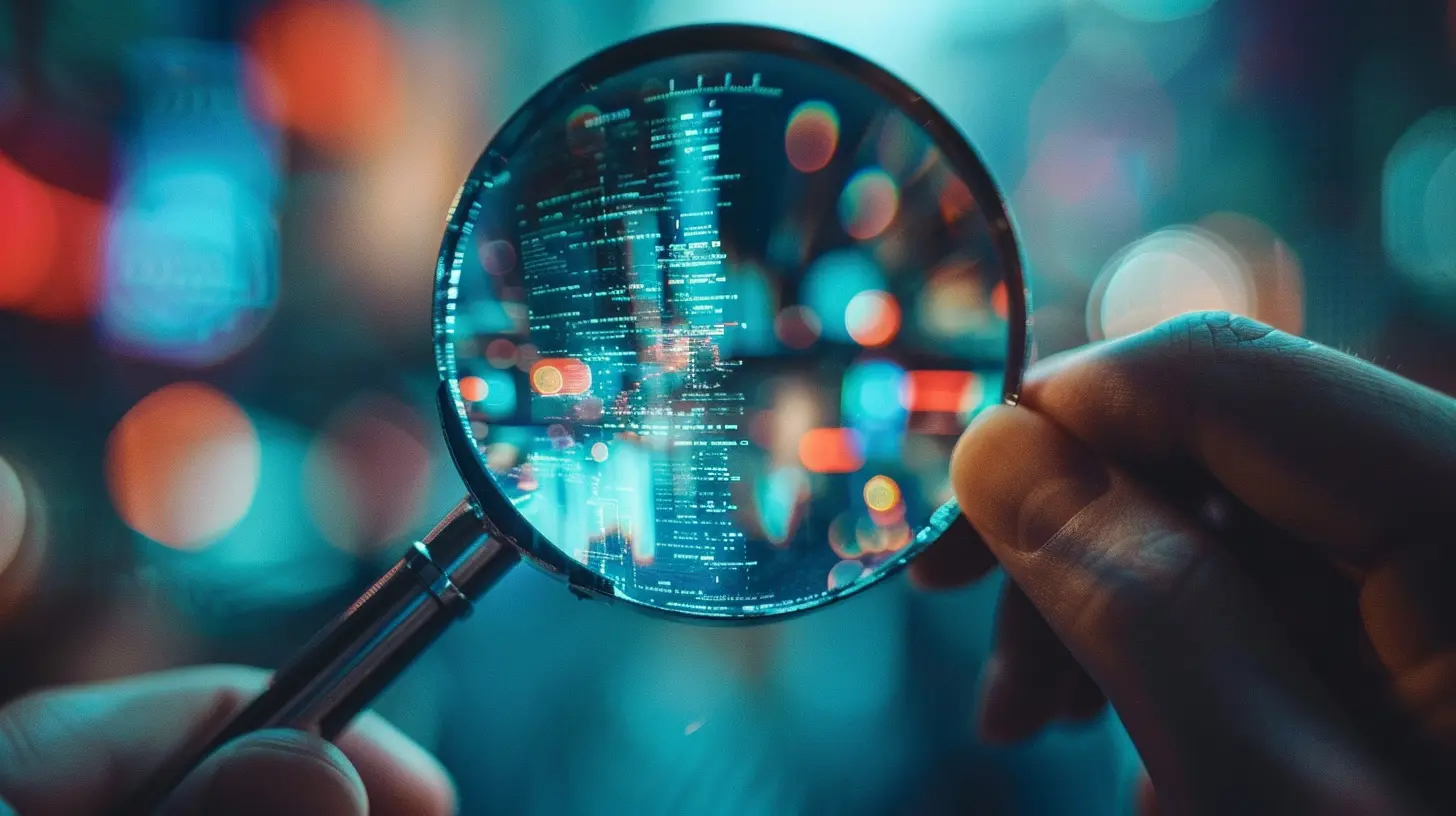The Importance of Security Audits and Vulnerability Assessments
9 November 2024
In today's digital age, it's no secret that cybersecurity threats are everywhere. Whether you're a small business, a massive corporation, or even just an individual, your online presence is always at risk. But here's the kicker: while many people know about the dangers of cyberattacks, only a few take the necessary steps to protect their systems. And that’s precisely why security audits and vulnerability assessments are so important.
If you've ever wondered why these terms keep popping up, or you're unsure if your business actually needs them, you're in the right place. In this article, we’ll dive deep into why security audits and vulnerability assessments matter, how they work, and why they should be at the top of your cybersecurity checklist.

What Are Security Audits and Vulnerability Assessments?
Before we get into the nitty-gritty of why these processes matter, let's break down what they actually are.Security Audits
A security audit is like a health checkup for your company’s IT infrastructure. Imagine going to the doctor for a full-body scan and getting a detailed report on everything that's working well and everything that's not. A security audit does the same thing but for your information systems. It evaluates your current security measures, policies, and procedures to ensure they are effective in protecting your data and systems.The goal is to uncover any vulnerabilities or weaknesses that could be exploited by hackers. It also ensures that your organization complies with relevant laws and regulations, such as GDPR (General Data Protection Regulation) or HIPAA (Health Insurance Portability and Accountability Act).
Vulnerability Assessments
A vulnerability assessment, on the other hand, is more of a focused examination. Think of it as a detective searching for clues. The goal of a vulnerability assessment is to identify specific weak spots in your software, hardware, or network that could be exploited by cybercriminals.While a security audit looks at the broader picture, a vulnerability assessment digs deep into your system to find potential security gaps. Once those vulnerabilities are identified, you can take action to fix them before they’re exploited.

Why Are Security Audits and Vulnerability Assessments So Important?
Now that we have a clearer understanding of what these processes are, let’s talk about why they’re essential.1. Cyber Threats Are Constantly Evolving
Cybersecurity is a never-ending arms race. Hackers are always coming up with new ways to infiltrate systems, and businesses need to constantly adapt to stay ahead. What worked as a security measure last year may not be effective today. The last thing you want is for your organization to be blindsided by a cyberattack because you didn’t keep your defenses up to date.Security audits and vulnerability assessments help ensure you're always one step ahead. By regularly examining your systems, you can identify outdated security measures and implement new ones before a hacker finds the loophole.
2. Data Breaches Are Expensive (And Embarrassing)
Let's be real for a second—nobody wants to be the next company to make headlines for a massive data breach. Not only is it embarrassing, but it can also be incredibly expensive. According to a report by IBM, the average cost of a data breach is around $4.24 million. Ouch!By conducting regular security audits and vulnerability assessments, you can drastically reduce the likelihood of a breach. Think of it as an investment in your company’s future. A little bit of prevention now can save you from a massive financial headache down the line.
3. Compliance Requirements
Depending on your industry, you may be legally required to perform regular security audits and vulnerability assessments. For example, businesses in the healthcare sector must comply with HIPAA regulations, which require regular checks to ensure patient data is secure. Similarly, companies that handle credit card transactions need to comply with PCI DSS (Payment Card Industry Data Security Standard) regulations.Failing to comply with these regulations can result in hefty fines, not to mention the damage it can do to your reputation. Regular security audits help ensure that your organization is following the rules and avoiding any legal trouble.
4. Protecting Customer Trust
Your customers trust you with their sensitive information, whether it’s their credit card details, social security numbers, or personal health data. If you lose that trust due to a security breach, it can be incredibly hard to win it back.Regular security audits and vulnerability assessments show your customers that you’re serious about protecting their data. It gives them peace of mind, which in turn can lead to greater customer loyalty. After all, if a customer doesn't feel safe with your company, they’re likely to take their business elsewhere.
5. Identifying Weaknesses Before Hackers Do
Hackers are always looking for the easiest way to infiltrate a system. They don’t want to spend time trying to break into a well-fortified network; they’re looking for low-hanging fruit. Vulnerability assessments help you identify those weak spots before the bad guys do.Once you know where your vulnerabilities are, you can fix them. It’s like locking your doors before a burglar even tries to get in. Without regular assessments, you might not even realize your doors are wide open to cybercriminals.

How Do Security Audits and Vulnerability Assessments Work?
Alright, so now you know why these processes are important. But how exactly do they work?The Security Audit Process
1. Planning: The first step is to define the scope of the audit. What systems and processes will be evaluated? Will the audit focus on your entire IT infrastructure or just specific areas?2. Data Collection: Auditors gather information about your organization’s existing security measures. This can involve reviewing documentation, interviewing key personnel, and analyzing system configurations.
3. Evaluation: Once the data is collected, the auditors evaluate the effectiveness of your security measures. They’ll look for any areas where your organization is vulnerable or non-compliant with regulations.
4. Reporting: After the evaluation, the auditors will provide a detailed report outlining their findings. This report will include recommendations for improving your security posture.
5. Implementation: Finally, it’s up to your organization to implement the recommendations from the audit. This might involve updating security policies, installing new software, or providing additional training to employees.
The Vulnerability Assessment Process
1. Identify Assets: The first step in a vulnerability assessment is identifying the systems, applications, and devices that need to be evaluated. This could include servers, workstations, network devices, and even mobile devices.2. Scan for Vulnerabilities: Next, a vulnerability scanner is used to analyze your systems. These scanners search for known vulnerabilities, such as outdated software, misconfigurations, or weak passwords.
3. Analyze Results: Once the scan is complete, the results are analyzed to determine which vulnerabilities pose the greatest risk. Not all vulnerabilities are created equal—some might be more critical than others.
4. Prioritize and Remediate: After identifying the most critical vulnerabilities, you can prioritize them for remediation. This might involve applying software patches, reconfiguring settings, or updating security protocols.
5. Rescan: After you’ve addressed the vulnerabilities, it’s important to rescan your systems to ensure the issues have been fixed.

How Often Should You Conduct Security Audits and Vulnerability Assessments?
So, how often should you be running these checks? It depends on your organization’s size, industry, and risk level. However, as a general rule of thumb:- Security Audits: At least once a year. If your organization has undergone significant changes, such as a merger or the adoption of new technologies, you may need to conduct an audit sooner.
- Vulnerability Assessments: These should be done more frequently. Many organizations perform them quarterly, but high-risk industries might require monthly assessments.
Remember, consistency is key. Cyber threats evolve quickly, and the more proactive you are, the better off your organization will be.
Final Thoughts
In a world where cyberattacks are more common and sophisticated than ever, security audits and vulnerability assessments are no longer optional—they’re essential. They help you stay ahead of the curve, protect your data, and maintain customer trust.Think of it this way: you wouldn’t leave your home unlocked, right? So why would you leave your business’s digital assets unprotected? Regular audits and assessments are like locking the doors, setting the alarm, and making sure everything is secure. Don’t wait until it’s too late.
all images in this post were generated using AI tools
Category:
CybersecurityAuthor:

Michael Robinson
Discussion
rate this article
22 comments
Riven Hill
Great article! Security audits and vulnerability assessments are crucial for protecting our digital lives. Let’s prioritize cybersecurity to ensure a safer online environment for everyone.
February 18, 2025 at 1:06 PM

Michael Robinson
Thank you! I completely agree—prioritizing cybersecurity is essential for safeguarding our digital lives. Your support is appreciated!
Briar Mercado
This article insightfully highlights the critical role of security audits and vulnerability assessments in safeguarding our digital landscape. Emphasizing proactive measures is essential for organizations to stay ahead of evolving threats. Thank you for sharing these important insights!
February 5, 2025 at 4:14 AM

Michael Robinson
Thank you for your thoughtful feedback! I’m glad you found the insights valuable. Proactive security measures are indeed crucial in today's digital landscape.
Calaris Pruitt
Security audits and vulnerability assessments are essential, as they proactively identify weaknesses, ensuring robust defenses against potential breaches and safeguarding critical data.
January 30, 2025 at 11:47 AM

Michael Robinson
Absolutely! Security audits and vulnerability assessments are crucial for enhancing defenses and protecting sensitive information. Thank you for highlighting their importance!
Cora Underwood
Great insights! Security audits and vulnerability assessments are vital for keeping our digital world safe and sound. Stay vigilant!
January 26, 2025 at 12:00 PM

Michael Robinson
Thank you! I completely agree—staying vigilant and proactive in these areas is essential for safeguarding our digital landscape.
Raina McFarlin
Security audits are the health checkups; without them, vulnerabilities are just ticking time bombs.
January 22, 2025 at 3:38 AM

Michael Robinson
Absolutely! Security audits are essential for identifying and mitigating vulnerabilities before they can be exploited. Regular assessments keep systems secure and healthy.
Haven Wolf
Great article! Security audits and vulnerability assessments are crucial for safeguarding our digital environment. They not only identify potential threats but also enhance overall trust in tech solutions. Thank you for highlighting the importance of proactive security measures!
January 19, 2025 at 3:48 AM

Michael Robinson
Thank you for your thoughtful comment! I'm glad you found the article valuable and agree on the importance of proactive security measures.
Ariella McVicar
Great insights on security audits! Regular assessments are crucial for identifying vulnerabilities and strengthening defenses. Let's prioritize safety in our tech environments!
January 16, 2025 at 5:36 AM

Michael Robinson
Thank you for your thoughtful comment! I completely agree—regular security audits are essential for maintaining robust defenses and ensuring safety in our tech environments.
Selene McCartney
Security audits and vulnerability assessments are non-negotiable for any organization committed to safeguarding its assets. Regular assessments not only identify weaknesses but also fortify defenses, ensuring robust protection against evolving threats. Prioritize security today for a resilient tomorrow.
January 9, 2025 at 8:04 PM

Michael Robinson
Absolutely! Regular security audits and vulnerability assessments are essential for ensuring comprehensive protection and resilience against threats. Prioritizing these practices is crucial for any organization.
Devin Lee
Great insights! Security audits and vulnerability assessments are crucial for protecting our digital landscape. Thanks!
January 2, 2025 at 4:11 AM

Michael Robinson
Thank you for your feedback! I'm glad you found the insights valuable. Securing our digital landscape is indeed vital.
Maura Hall
Essential for safeguarding digital assets effectively.
December 28, 2024 at 12:52 PM

Michael Robinson
Absolutely! Security audits and vulnerability assessments are crucial for protecting digital assets and ensuring robust cybersecurity.
Tracie Bass
Great article! Security audits and vulnerability assessments may sound daunting, but think of them as a tech tune-up! Just like your car needs regular check-ups to keep running smoothly, your systems deserve the same care to stay safe. Let’s keep our digital world secure and thriving! 🚀🔒
December 17, 2024 at 9:00 PM

Michael Robinson
Thank you for your insightful comparison! Just like a car, regular check-ups are essential for maintaining system health and security. Let’s keep our digital landscape safe together! 🚀🔒
Isaac Patterson
What a fantastic read! Security audits and vulnerability assessments are crucial for safeguarding our digital world. This article highlights their importance brilliantly, reminding us that proactive measures are key to maintaining trust and integrity in technology. Well done!
December 9, 2024 at 8:09 PM

Michael Robinson
Thank you for your kind words! I'm glad you found the article insightful. Proactive security measures are indeed essential for a safe digital environment.
Roman Watson
Great article! Security audits and vulnerability assessments are essential in today’s digital landscape. They not only help identify potential risks but also strengthen trust with users. Regular checks can save organizations from costly breaches. Thanks for highlighting such an important topic! Keep up the informative work!
December 3, 2024 at 4:58 AM

Michael Robinson
Thank you for your kind words! I’m glad you found the article insightful. Your emphasis on trust and cost savings truly captures the importance of regular security assessments!
Winona Cook
Security audits and vulnerability assessments are like the tech world's version of a dental check-up—important but often avoided until something hurts! Just remember, a little flossing (or auditing) today can save you from a root canal (or data breach) tomorrow! 🦷💻🚀
November 30, 2024 at 1:04 PM

Michael Robinson
Great analogy! Just like regular dental check-ups, proactive security audits can prevent major issues down the line. Let's prioritize our cybersecurity health! 🛡️✨
Preston McKinnon
Secure systems are essential! I'm intrigued by how security audits can uncover hidden vulnerabilities. Looking forward to learning more about best practices!
November 29, 2024 at 5:02 AM

Michael Robinson
Thank you for your interest! Security audits are indeed crucial for identifying vulnerabilities and enhancing system safety. I'm glad you're eager to learn more about best practices!
Wesley Heath
Great insights! Regular security audits and vulnerability assessments are essential for safeguarding our digital future.
November 27, 2024 at 4:14 AM

Michael Robinson
Thank you! I completely agree—regular security audits and assessments are vital for maintaining robust digital defenses.
Paxton James
Security audits and vulnerability assessments are essential for safeguarding digital assets. They not only identify potential weaknesses but also help organizations establish a proactive security posture. While these processes can be resource-intensive, the investment in regular assessments significantly reduces the risk of breaches and enhances overall cybersecurity resilience.
November 23, 2024 at 1:40 PM

Michael Robinson
Absolutely, regular security audits and vulnerability assessments are crucial for identifying weaknesses and strengthening cybersecurity. Investing in these processes pays off by reducing breach risks and enhancing overall resilience. Thank you for highlighting their importance!
Imani McCaffrey
Ah yes, because ignoring security is clearly the best way to invite hackers to your digital party!
November 21, 2024 at 12:25 AM

Michael Robinson
Absolutely! Prioritizing security is essential to keeping hackers at bay and ensuring a safe digital environment.
Nicole Gill
Great article! It's crucial for organizations to prioritize security audits and vulnerability assessments to safeguard their systems and data effectively.
November 20, 2024 at 5:52 AM

Michael Robinson
Thank you! I'm glad you found it valuable. Prioritizing these practices is indeed essential for protecting our systems and data.
Axel McMeekin
Security audits and vulnerability assessments are crucial for identifying potential weaknesses in an organization’s infrastructure. They not only enhance compliance with regulations but also bolster overall security posture, enabling proactive risk management. Regular assessments help organizations adapt to evolving threats and safeguard sensitive data effectively.
November 18, 2024 at 3:37 AM

Michael Robinson
Thank you for highlighting the vital role of security audits and vulnerability assessments in enhancing organizational security and compliance. Your insights underscore the need for ongoing adaptation to emerging threats.
Galina McFarlane
Great article! 🛡️ Security audits and vulnerability assessments are like tech hygiene—essential for a healthy digital ecosystem! Let’s keep our data safe and our worries at bay. Remember, proactive measures today mean peace of mind tomorrow! 😊
November 13, 2024 at 10:27 AM

Michael Robinson
Thank you for your insightful comment! I completely agree—proactive security measures are vital for a secure digital environment. Let’s stay vigilant! 😊
Zacharias McCracken
Great article! Security audits and vulnerability assessments are essential for safeguarding our digital world. They empower organizations to identify weaknesses and strengthen their defenses, fostering a proactive culture of security. Remember, a secure environment enables innovation to thrive! Keep inspiring!
November 12, 2024 at 3:58 PM

Michael Robinson
Thank you for your insightful comment! I completely agree—security audits and vulnerability assessments are crucial for fostering innovation and a strong security culture.
MORE POSTS

Phishing Scams You Need to Avoid: A Comprehensive Guide

Why Collaboration Tools Are Essential for Tech Startup Success

The Future of Green Aviation: Electric Planes and Sustainable Fuel

How Robotics is Transforming the Entertainment Industry

E-Bikes for the City: Which One Should You Ride?

The Importance of Multi-Factor Authentication for Online Security

Can Blockchain Save the Music Industry from Piracy?

The Future of Green Energy: Could Fusion Power Be the Answer?

What Makes a Great Esports Shoutcaster?

How Cloud-Based Editing Tools Are Changing Content Creation

The Importance of Strategic Partnerships for Tech Startups

Wearable Devices and Fashion: When Technology Meets Style

Big Data in Education: Enhancing Learning Outcomes